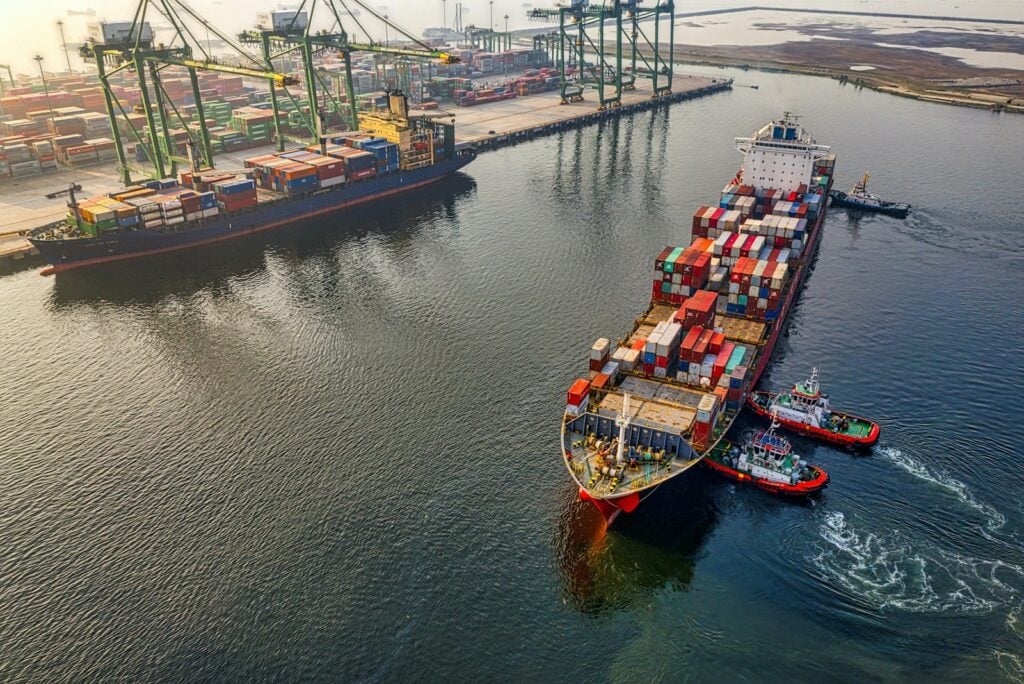International arbitration is attractive because of the freedom it offers the parties: the freedom to choose their judges, the procedure, the applicable rules of law, etc. This flexibility is invaluable in the complex context of global trade. But is this autonomy of will boundless? Are there higher principles, mandatory rules that even private justice cannot ignore? The answer is yes. Concepts such as public policy and public order place limits on contractual freedom and the role of the arbitrator. In addition, the interaction with certain specific areas, such as competition law, raises complex questions about the arbitrability of disputes and the control exercised over awards. This article explores these frontiers of international arbitration.
Police laws": when the State imposes its rules
In addition to the rules that the parties choose to govern their contract, some States enact laws that are considered so essential to the protection of their public interests (political, social, economic) that they must be applied to any situation that has a sufficient connection with that State, regardless of the law normally applicable to the contract. These are the police laws (sometimes referred to as laws of immediate application).
They can be found in a variety of fields: exchange controls, embargoes, protection of cultural property, mandatory safety rules, certain fundamental protections in labour law or consumer law, regulation of commercial intermediaries, etc.
For the international arbitrator, who has no "forum" (home court), the situation is special. All national laws are, in theory, foreign to him. He is therefore not directly bound by the mandatory rules of a given state, even the state in which the arbitration takes place or the state whose law governs the contract. However, ignoring a relevant mandatory rule can be perilous. If the award does not comply with the public policy law of the country in which enforcement is sought, there is a high risk that enforcement will be refused on the grounds that the award is contrary to the public policy of that country. The prudent arbitrator must therefore identify potentially applicable mandatory rules (those of countries with close links to the dispute) and take them into account in his decision, not because he is legally obliged to do so, but to ensure the international effectiveness of his award and to meet the legitimate expectations of the parties as to the legality of their transaction.
Domestic public policy vs. international public policy
The concept of "public policy" is another classic limit on contractual freedom (set out in Article 6 of the French Civil Code). However, a careful distinction must be made between two levels of public policy in international matters:
- Internal public policy : It represents all the mandatory rules of a given national legal system, from which the parties may not derogate in their purely internal relations. In international arbitration, this domestic public policy (whether French or foreign) has a very limited scope. If the parties have chosen a national law to govern their contract, the arbitrator will in principle apply the mandatory rules of that law, unless the parties have clearly derogated from it in a specific clause of their contract. If the arbitrator himself chooses an applicable national law (in the absence of a choice by the parties), he is generally not obliged to apply all the mandatory rules of that law. Public policy internal of a country is not, in itself, a limit for the international arbitrator.
- International Public Order (IPO) : This is a narrower but more fundamental concept. It refers to a set of principles and values considered essential by a given legal order (here, the French legal order) in the international relations. This is the "hard core" of a country's legal and moral concepts, which must be respected even in an international context.
- Contents: The French OPI includes aspects procedural (respect for the rights of the defence, adversarial process, equality of the parties, principle of impartiality of arbitrators) and substantial (prohibition of illegal activities such as corruption, drug trafficking and terrorism; respect for certain fundamental human rights; essential principles of economic law such as freedom of trade and industry or the prohibition of perpetual commitments). This content is evolving and is appreciated by the French courts.
- Function : The OPI's main role is to limits on recognition and enforcement in France of international arbitral awards. Article 1520-5° of the Code of Civil Procedure provides that an action for annulment may be brought if the recognition or enforcement of the award is contrary to international public policy. Similarly, under article 1514, exequatur is conditional on the award not being contrary to manifesto to this OPI.
The French court's review of the award's compliance with the IPO is a thorough one. The judge examines the solution adopted in the award and verifies, by analysing the relevant facts and law, whether it clearly infringes a rule covered by the French IPO. He is no longer limited to looking only for a "flagrant" violation.
The substantive rules of private international law
Sometimes, in order to meet the specific needs of international trade and avoid the uncertainties associated with the application of conflict of laws rules, French case law has developed a number of "conflict of laws" rules. material rules. These are rules of substantive law, directly applicable to international situations, without having to designate a national law via a conflict rule.
Several fundamental principles of French international arbitration fall into this category:
- The principle of validity and autonomy of the arbitration agreement international (case law Gosset, Dalico).
- La capacity of legal persons governed by public law to conclude an international arbitration agreement (case law Galakis).
These substantive rules are intended to offer predictable solutions tailored to the specific features of international commercial relations, often enshrining principles that are widely recognised in practice.
Arbitration and competition law: a complex relationship
Competition law (prohibition of anti-competitive agreements, abuse of a dominant position, etc.) is a set of mandatory rules designed to protect the proper functioning of the market. Its interaction with arbitration raises a number of issues.
- Arbitrability : Can a dispute involving the application of competition law be submitted to arbitration? The answer, after some hesitation in the past, is now clearly yes. Whether under European law (Articles 101 and 102 of the Treaty on the Functioning of the European Union - TFEU), French law (Livre IV of the Commercial Code) or foreign law (such as the American Sherman Act), it is accepted that arbitrators can decide disputes where competition rules are at stake.
- Application by the referee : Arbitrators faced with competition issues must apply the relevant rules:
- EU law : Articles 101 and 102 TFEU are considered to be part of international public policy (at least for Europe). Arbitrators whose awards are to be enforced in the EU must apply them, even ex officio (subject to the adversarial procedure). Since Regulation (EC) No 1/2003, the arbitrator has even had the power to assess whether a restrictive agreement meets the conditions for exemption under Article 101(3) TFEU.
- National law (French or foreign) : The arbitrator shall apply it if it constitutes the law chosen by the parties or determined by him to be applicable to the substance of the dispute.
- Judicial review : This is where the interaction is most sensitive. The compliance of the award with the fundamental rules of competition law is reviewed by the judge responsible for annulment or enforcement under theinternational public policy (article 1520-5°). If the judge considers that the award endorses a prohibited anti-competitive practice or disregards an essential rule of competition falling within the scope of the IPO, he may annul it or refuse to enforce it. As mentioned above, this review is now more thorough and is no longer limited to "flagrant" violations. The judge will re-examine the facts and the law to ensure that the agreement is compatible with the competition rules. solution arbitration with the competitive OPI.
- Cooperation and amicable settlement : The European Union is seeking to combine arbitration with public enforcement of competition law. Regulation 1/2003 envisaged the possibility of the Commission or national competition authorities intervening as amicus curiae (an observer providing insight) in arbitration proceedings, although this practice remains limited. More recently, Directive 2014/104/EU on damages actions for breach of competition law explicitly encourages out-of-court settlements, including arbitration, to resolve such disputes.
In short, while international arbitration offers considerable contractual and procedural freedom, it is not immune from the influence of fundamental rules. Arbitrators must carefully navigate between the will of the parties, the applicable rules of law, and the imperative requirements of public policy and international public order, particularly in sensitive areas such as competition law, or risk seeing their award rendered ineffective by the review of the state judge.
The interaction between arbitration and mandatory rules such as public policy or competition law raises complex issues. To anticipate these issues in your contracts or defend an award, our firm's expertise is a major asset. We look forward to hearing from you.
Sources
- Code of Civil Procedure (in particular articles 1506, 1511, 1514, 1520)
- Civil Code (in particular Article 6)
- Treaty on the Functioning of the European Union (TFEU) (in particular Articles 101 and 102)
- Regulation (EC) No 1/2003 on the implementation of the rules on competition laid down in Articles 81 and 82 of the Treaty (now Articles 101 and 102 TFEU)
- Directive 2014/104/EU on damages actions for breach of competition law
- Key case law (listed by way of illustration: Cass. Civ. 1ère, 2 May 1966, GalakisCass. ass. plén. 24 May 1975, Cafés Jacques VabreECJ, 1 June 1999, Eco SwissCass. Civ. 1ère, June 4, 2008, Thales)




